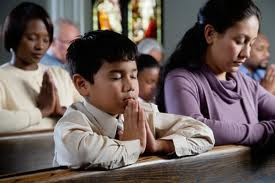Kol Nidrei - The Day of Atonement -Forgiveness
Therefore, since we have a great high priest who has ascended into heaven, Jesus the Son of God, let us hold firmly to the faith we profess. For we do not have a high priest who is unable to empathize with our weaknesses, but we have one who has been tempted in every way, just as we are—yet he did not sin. Let us then approach God’s throne of grace with confidence, so that we may receive mercy and find grace to help us in our time of need. Hebrews 4:14-16 NIV
Yom Kippur (the Day of Atonement) is one of two Jewish High Holy Days. The first High Holy Day is Rosh Hashanah (the Jewish New Year). Yom Kippur falls ten days after Rosh Hashanah on the 10th of Tishrei, which is a Hebrew month that correlates with September-October on the secular calendar. The purpose of Yom Kippur is to bring about reconciliation between people and between individuals and God. According to Jewish tradition, it is also the day when God decides the fate of each human being.
Although Yom Kippur is an intense holiday it is nevertheless viewed as a happy day. Why? Because if one has observed the holiday properly by the end of Yom Kippur they will have made peace with others and with God.
There are three essential components of Yom Kippur:
Teshuvah (Repentance)
Yom Kippur is a day of reconciliation, when Jews strive to make amends with people and to draw closer to God through prayer and fasting. The ten days leading up to Yom Kippur are known as the Ten Days of Repentance. During this period Jews are encouraged to seek out anyone they may have offended and to sincerely request forgiveness so that the New Year can begin with a clean slate. If the first request for forgiveness is rebuffed, one should ask for forgiveness at least two more times, at which point the person whose forgiveness is being sought should grant the request. The rabbis thought it was cruel for anyone to withhold their forgiveness for offenses that had not caused irrevocable damage.
This process of repentance is called teshuvah and it is a crucial part of Yom Kippur. Although many people think that transgressions from the previous year are forgiven through prayer, fasting and participation in Yom Kippur services, Jewish tradition teaches that only offenses committed against God can be forgiven on Yom Kippur. Hence it is important that people make an effort to reconcile with others before participating in Yom Kippur services.
Prayer
Yom Kippur is the longest synagogue service in the Jewish year. It begins on the evening before Yom Kippur day with a haunting song called Kol Nidre (All Vows). The words of this melody ask God to forgive any vows people have made to God and not kept. The service on the day of Yom Kippur lasts from morning until nightfall. Many prayers are said but one is repeated at intervals throughout the service. This prayer is called Al Khet and asks for forgiveness for a variety of sins that may have been committed during the year. The Jewish concept of sin is not like the Christian concept of original sin. Rather, it’s the kind of everyday offenses like hurting those we love, lying to ourselves or using foul language that Judaism views as sinful. You can clearly see examples of these infractions in the Yom Kippur liturgy, for instance in this excerpt from Al Khet:
For the sin that we have committed under stress or through choice;When Al Khet is recited people gently beat their fists against their chests as each sin is mentioned. Sins are mentioned in plural form because even if someone hasn’t committed a particular sin, Jewish tradition teaches that every Jew bears a measure of responsibility for the actions of other Jews.
For the sin that we have committed in stubbornness or in error;
For the sin that we have committed in the evil meditations of the heart;
For the sin that we have committed by word of mouth;
For the sin that we have committed through abuse of power;
For the sin that we have committed by exploitation of neighbors;
For all these sins, O God of forgiveness, bear with us, pardon us, forgive us!
During the afternoon portion of the Yom Kippur service the Book of Jonah is read to remind people of God’s willingness to forgive those who are sincerely sorry. The last part of the service is called Ne’ilah (Shutting). The name comes from the imagery of Ne’ilah prayers, which talk about gates being shut against us. People pray intensely during this time, hoping to be admitted to God’s presence before the gates have been shut.
by information:http://judaism.about.com/od/holidays/a/yomkippur.htm
God is Love 1John 4:16





Comments